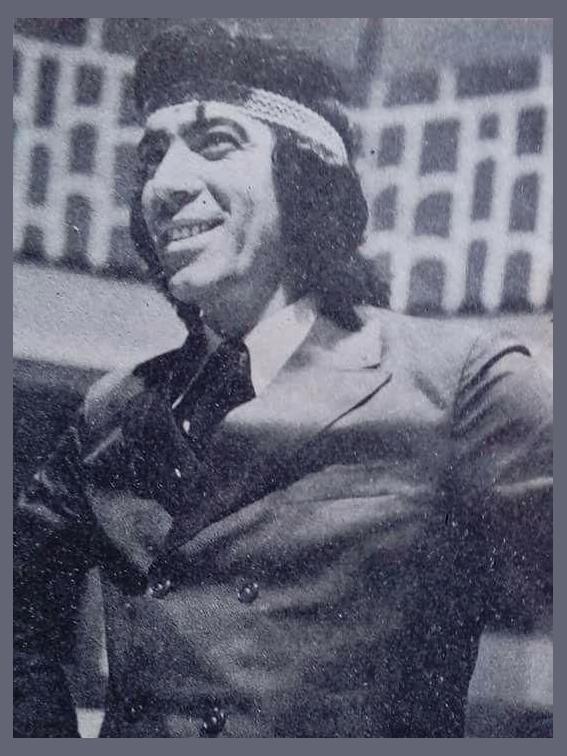 Miltinho Rodrigues
Miltinho Rodrigues
Miltinho Rodrigues: A Journey of Melody and Adversity
Miltinho Rodrigues, a legendary crooner whose voice resonated through generations of Brazilian hearts, left an indelible mark on the nation's musical landscape. His captivating vocals and heartfelt renditions of romantic ballads earned him the title of "The Voice of Pain."
Early Life and Influences:
Born in Rio de Janeiro in 1912, Miltinho Rodrigues grew up in the vibrant neighborhood of Morro da Mangueira. His humble upbringing and exposure to traditional Brazilian music, particularly samba and choro, shaped his musical sensibilities from a young age.
Musical Beginnings:
In the 1930s, Rodrigues joined a carnival bloco (street band) called Estação Primeira de Mangueira. His soaring vocals and charismatic stage presence quickly caught the attention of record producers, and in 1934, he made his recording debut with the song "Meu Viver."
Controversies and Challenges:
Despite his immense talent, Rodrigues faced numerous challenges throughout his career. His outspoken political views and refusal to conform to societal norms often led to controversy. In 1940, he was arrested and imprisoned for his participation in a protest against the Vargas dictatorship.
Rise to Fame:
Undeterred by adversity, Rodrigues continued to perform and release music. In 1945, he recorded one of his most iconic songs, "Para o Que Der e Vier," a romantic ballad that became an instant classic. The song's timeless lyrics and Rodrigues's emotive delivery made it a beloved anthem for lovers across Brazil.
Collaborations and Success:
Throughout his career, Rodrigues collaborated with some of the most renowned musicians and composers of his era, including Ary Barroso, Noel Rosa, and Francisco Alves. His recordings sold millions of copies, solidifying his status as a musical icon.
Later Years and Legacy:
In his later years, Rodrigues continued to tour and perform, sharing his music with generations of fans. He passed away in 1974, leaving behind a legacy of timeless melodies and heartfelt performances.
Discography Highlights:
* Meu Viver (1934)
* Para o Que Der e Vier (1945)
* Abre o Coração (1948)
* Último Desejo (1953)
* A Flor e o Espinho (1962)
Members:
Miltinho Rodrigues performed primarily as a solo artist, but he occasionally collaborated with other musicians, including:
* Francisco Alves
* Ary Barroso
* Noel Rosa
Miltinho Rodrigues, a legendary crooner whose voice resonated through generations of Brazilian hearts, left an indelible mark on the nation's musical landscape. His captivating vocals and heartfelt renditions of romantic ballads earned him the title of "The Voice of Pain."
Early Life and Influences:
Born in Rio de Janeiro in 1912, Miltinho Rodrigues grew up in the vibrant neighborhood of Morro da Mangueira. His humble upbringing and exposure to traditional Brazilian music, particularly samba and choro, shaped his musical sensibilities from a young age.
Musical Beginnings:
In the 1930s, Rodrigues joined a carnival bloco (street band) called Estação Primeira de Mangueira. His soaring vocals and charismatic stage presence quickly caught the attention of record producers, and in 1934, he made his recording debut with the song "Meu Viver."
Controversies and Challenges:
Despite his immense talent, Rodrigues faced numerous challenges throughout his career. His outspoken political views and refusal to conform to societal norms often led to controversy. In 1940, he was arrested and imprisoned for his participation in a protest against the Vargas dictatorship.
Rise to Fame:
Undeterred by adversity, Rodrigues continued to perform and release music. In 1945, he recorded one of his most iconic songs, "Para o Que Der e Vier," a romantic ballad that became an instant classic. The song's timeless lyrics and Rodrigues's emotive delivery made it a beloved anthem for lovers across Brazil.
Collaborations and Success:
Throughout his career, Rodrigues collaborated with some of the most renowned musicians and composers of his era, including Ary Barroso, Noel Rosa, and Francisco Alves. His recordings sold millions of copies, solidifying his status as a musical icon.
Later Years and Legacy:
In his later years, Rodrigues continued to tour and perform, sharing his music with generations of fans. He passed away in 1974, leaving behind a legacy of timeless melodies and heartfelt performances.
Discography Highlights:
* Meu Viver (1934)
* Para o Que Der e Vier (1945)
* Abre o Coração (1948)
* Último Desejo (1953)
* A Flor e o Espinho (1962)
Members:
Miltinho Rodrigues performed primarily as a solo artist, but he occasionally collaborated with other musicians, including:
* Francisco Alves
* Ary Barroso
* Noel Rosa